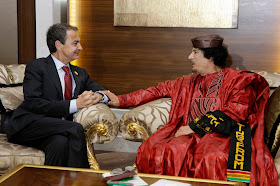________________________
SUICIDE OF A SUPERPOWER: WILL AMERICA SURVIVE TO 2025?
Thomas Dunne, 488 pages, $27.99
Reviewed by Brett M. Decker Washington Times
I went to a dealership last weekend to check out an All-American muscle car, but it didn’t turn out to be all-American at all. As listed on the window sticker, the domestic content was only 55 percent. The transmission, one of the most important components on the vehicle - especially for a performance machine - was manufactured in China. On the same day, I dropped into a hardware store to pick up a box of nails, and they were all made in the People’s Republic, too. After a long day of trying to avoid purchasing products made by the communist Chinese, I settled down at home to eat a refreshing fruit cup. When I flipped the plastic container over to check out the nutritional information, there it was in black and white and all capital letters: PRODUCT OF CHINA. The reds had invaded my refrigerator.
It doesn’t matter what you want; almost every consumer product on U.S. store shelves is made overseas, especially in China. It doesn’t matter how much you want to find it; almost nothing you need is made in the USA. From expensive manufactured equipment to swank plasma TVs to the simplest munchies for a kid’s lunchbox, that “Product ofChina” label is stamped on it all. Try taking the China Test for a month or two - maybe even a year. Any time you buy anything, flip it over and read the label to see if it was made in the Middle Kingdom. The results of a thorough China Test can be startling: Americans are dependent on the Maoist state for the necessities of life. Obviously, this dynamic cannot work forever. Eventually, a nation needs to produce something it can sell to have the revenue to consume anything - and America is making less all the time.
In his new blockbuster book, “Suicide of a Superpower: Will America Survive to 2025?” Patrick J. Buchanan chronicles the demise of American manufacturing. “From 2000 to 2010, America saw 50,000 factories close and 6 million manufacturing jobs disappear,” he writes. “Manufacturing, 27 percent of the U.S. economy in 1950, is down to 11 percent and accounts for only 9 percent of the non-farm labor force.” This is not only bad for the working class because service jobs pay half as much on average as manufacturing jobs, it is dangerous for national security as well. Military contractors are dependent on parts made abroad, which means America’s ability to project force is tied to foreign suppliers whose interests might not always coincide with our own. “The defense industry has been off-shored,” warned former South Carolina Sen. Fritz Hollings. “Today, we can’t go to war except for the favor of a foreign country.”
There are countless national policies that put U.S. manufacturers at a disadvantage in their own land and chase jobs overseas. Onerous federal taxes on income made abroad mean companies don’t bring cash home which could be invested in creating jobs. House Ways and Means Committee Chairman Dave Camp, Michigan Republican, estimates $1 trillion in U.S. corporate money is sitting in foreign bank accounts to avoid tax penalties here. That’s treasure not going to domestic research-and-development or facilities expansion. Backward labor laws also make it more expensive for the Big Three domestic automobile manufacturers to produce cars in America than foreign firms, which are free to set up in cheaper nonunion southern states without fear of a national strike. On top of all this is the fact that China can break every trade law on the books and nothing is done about it. These are policies of a nation that’s no longer serious about being competitive.
Meanwhile, as millions upon millions of private-sector jobs disappear, the government leviathan continues to grow unabated. In 1960, 8.7 million people worked for the government; today that number has ballooned to 22.5 million. “Between the passage of Obama’s stimulus bill in 2009 and September 2010, millions of private-sector jobs disappeared but 416,000 new government jobs were created,” Mr. Buchanan reports. On average, federal employees earn about $62,000 more per year than workers in the private sector. The burgeoning bureaucracy and all its big-government programs don’t come cheap and have brought the world’s most productive economy to the brink of bankruptcy.
Once the world’s largest creditor, now America is the biggest debtor nation in history. We are running trillion-plus-dollar deficits every year that add to a national debt closing in fast on $15 trillion. A nation is not free when it owes so much because there are strings attached when a foreign power maintains such a large financial stake in another state. Beijing, for example, owns over $1.2 trillion in U.S. debt, which gives it sway over U.S. affairs. The debt jam leads to worry that Washington will either go into default or inflate like crazy to be able to pay off debt with dollars worth much less. Both are options of a seriously diminished economy and will lead to punishing consequences for taxpayers. If liberal Democrats had their way and used revenue increases to balance the budget, taxes on everybody would have to go up by 67 percent.
America’s national crisis is a failure of leadership. Although the country is about to drive over the cliff, our elected representatives have proven incapable of taking action to change directions. We see the problems and understand the crisis but no longer have the will to do what’s right. President Obama has admitted that “At no time in human history has a nation of diminished economic vitality maintained its military and political primacy,” yet his policies have gutted the U.S. economy to its worst condition since the Great Depression. Clare Booth Luce quipped that, “The difference between an optimist and a pessimist is that the pessimist is usually better informed.” Pat Buchanan’s new book provides all the information anyone needs to be pessimistic about the future.
Brett M. Decker is editorial page editor of The Washington Times. He is coauthor of the new book “Bowing to Beijing” (Regnery, 2011).



















